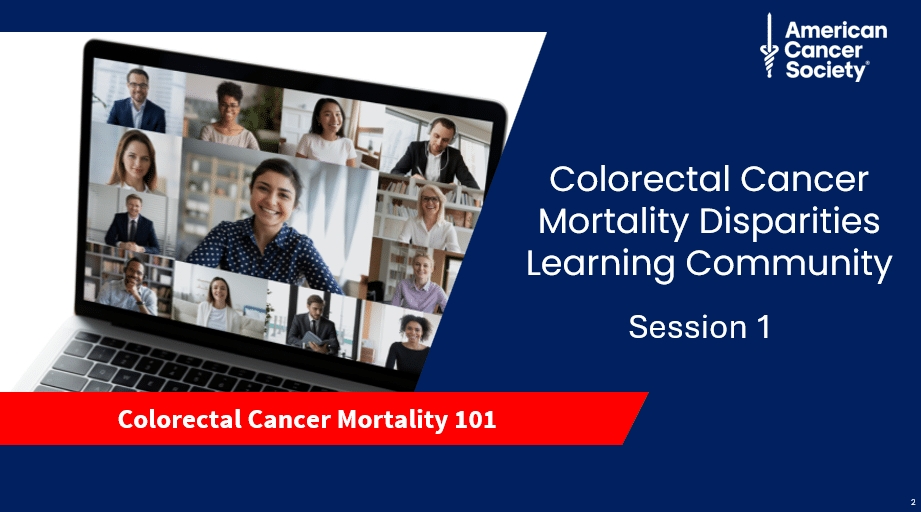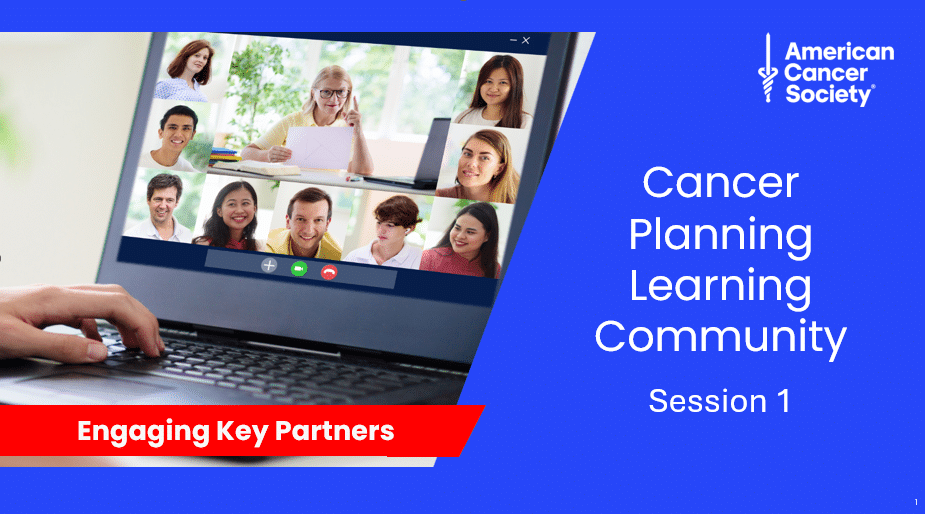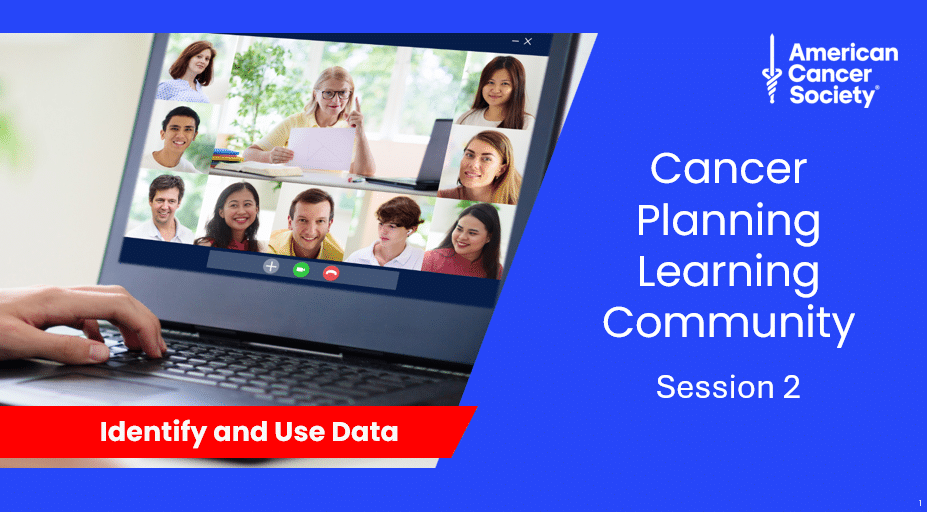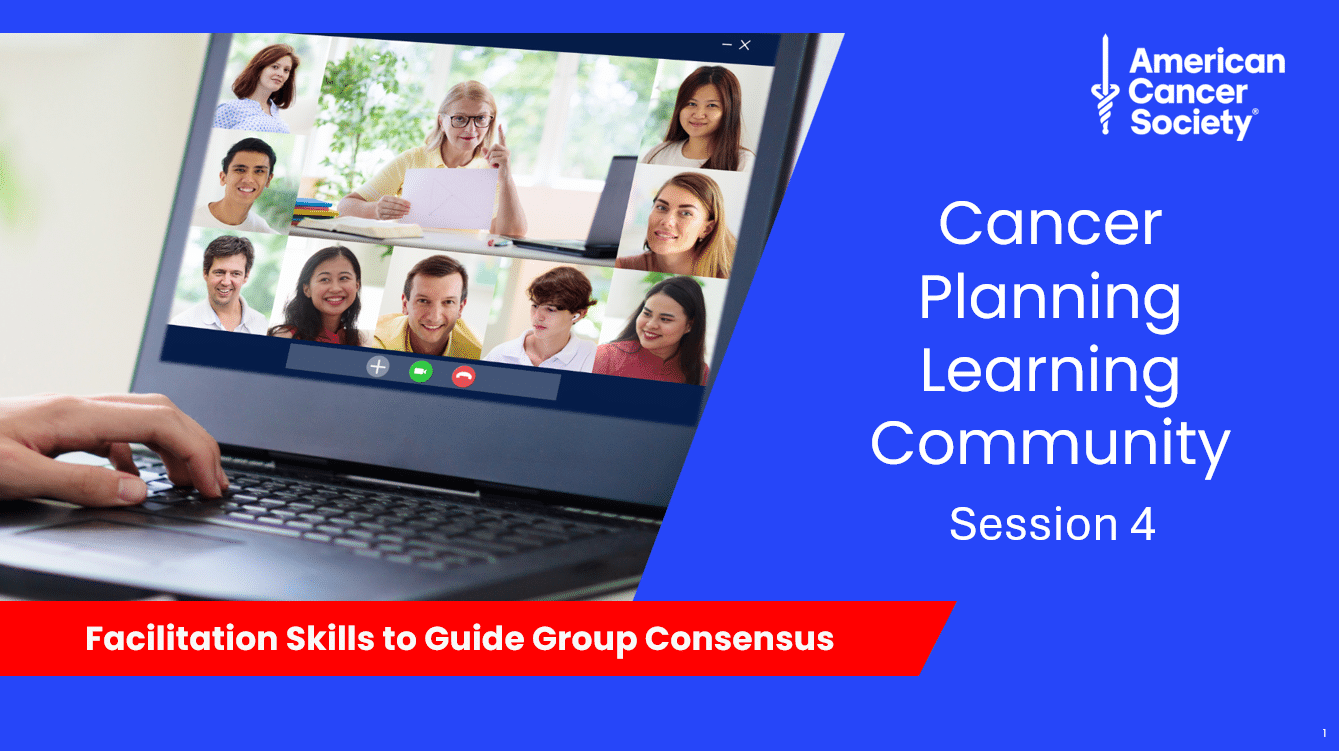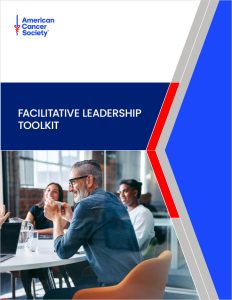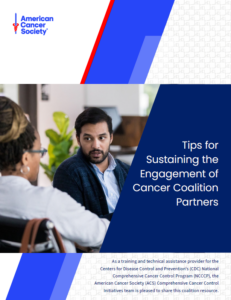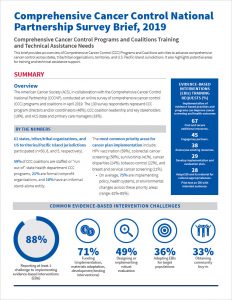This page provides resources for growing and sustaining your program or coalition.
Colorectal Cancer Mortality Disparities Learning Community
Session 1 of the 'Colorectal Mortality Disparities Learning Community' series addressed CRC Mortality 101. Watch the presentation portion of the session, where you'll hear how an expert gives an overview of CRC mortality data, especially related to the notable disparities with CRC incidence.
Colorectal Cancer Mortality Disparities Learning Community
Session 2 of the 'Colorectal Mortality Disparities Learning Community' series addressed Timely Follow-Up Colonoscopy and CRC Mortality. Watch the presentation portion of the session, where you'll hear how an expert gives an overview of increasing integration of interventions mitigating colorectal cancer (CRC) mortality disparities into the state comprehensive cancer coalition planning process.
Colorectal Cancer Mortality Disparities Learning Community
Session 3 of the 'Colorectal Mortality Disparities Learning Community' series addressed CRC Survivorship. Watch the presentation portion of the session, where you'll learn how to increase integration of interventions mitigating colorectal cancer (CRC) mortality disparities into the state comprehensive cancer coalition planning process.
Cancer Planning Learning Community
Session 2 of the 'Cancer Planning Learning Community' series addressed Identifying & Using Data to Guide Your Cancer Plan Efforts. Watch the Discussion Panel portion of the session, where you'll hear how three public health colleagues approach this core coalition issue.
Cancer Planning Learning Community
Session 3 of the 'Cancer Planning Learning Community' series addressed Identifying and Adapting Implementation Strategies for your cancer plan. Watch the presentation portion of the session, where you'll hear how a public health colleague approaches this core coalition issue.
Cancer Planning Learning Community
Session 4 of the 'Cancer Planning Learning Community' series addressed Facilitation Skills to Guide Group Consensus for your cancer plan. Watch the presentation portion of the session, where you'll learn communication strategies that will help build your confidence and skills in overcoming initial disagreements and reaching consensus.
Cancer Planning Learning Community
Session 5 of the 'Cancer Planning Learning Community' series addressed Monitoring and Sharing Progress for your cancer plan. Watch the panelist and Q&A portion of the session, where you'll learn effective strategies for communicating cancer plan status reports to coalition members.
Facilitative Leadership Toolkit
This comprehensive toolkit of best practices for facilitative leaders helps you to work with groups of people to set direction, make decisions, and act on the issues that are important to the group. Facilitative leadership uses an ask style and not a directive (tell) style and is built around the five core practices of trusting the group, modeling authenticity, creating a path forward, developing people, and addressing conflicts and disagreements. Leading a coalition of highly capable, motivated, and professional volunteers is a great opportunity for you to learn more about how to use facilitative leadership skills to make your projects more successful.
Nine Habits of Successful Coalitions, 3rd Edition
Nine Habits of Successful Comprehensive Cancer Control Coalitions, 3rd Edition. The new third edition was revised to incorporate health equity principles and examples, across all the habits. The guide is a “must-have” resource that helps Comprehensive Cancer Control coalitions and other cancer-related organizations to build habits that empower members and sustain successful coalitions. Each Habit has an assessment and tool for use at your next coalition meeting! The guide was made possible through the collaboration of the Comprehensive Cancer Control National Partnership with leadership in development from Strategic Health Concepts and the American Cancer Society.
Tips for Sustaining the Engagement of Cancer Coalition Partners
This handy resource gives you 10 groups of tips that you can use to sustain the engagement of your coalition partners from the time they become new members until they are experienced enough to want to network with other coalitions and groups. This tip sheet will help you to cover all the bases by doing things that make your coalition partners feel valued and engaged in your coalition work.
Communication Tools and Resources
These communication tools and resources will help you to create a coalition identity and effectively communicate your key stories and messages. The resources include online courses on how to tell your digital story, how to brand and market your coalition, how to create a slogan and logo for your coalition, how to write compelling messages, and how to promote your coalition's successes. Everything you need is in one place.
What CCC Coalitions Can Do to Advance 80% in Every Community
Colorectal cancer is the second-leading cause of cancer-related death in the United States among men and women combined, yet it is one of the most preventable. This brief contains useful information and resources that will accelerate efforts to improve screening rates in your state, tribal organization, or territory.
Funding for Your Coalition
Grant Funding. Researchers and clinicians play an important and invaluable role in comprehensive cancer control coalitions across the country. The ACS is the nation's largest private, not-for-profit source of funds for scientists studying cancer. Although the ACS primarily supports beginning investigators, grants are also available for clinical and/or research training of health professionals (nurses, physicians, and social workers).
Comprehensive Cancer Control Coalition Survey Briefs
CCCNP Coalition Survey Briefs. These briefs summarize the survey findings of Comprehensive Cancer Control (CCC) Programs and Coalitions activities to advance comprehensive cancer control across states, tribe/tribal organizations, territories, and U.S. Pacific Island jurisdictions.
2016 CCC Program and Coalition Assessment
2016 CCC Program and Coalition Assessment. The purpose of this 2016 survey was to better understand the relationship of CRC and HPV stakeholder groups to CCC coalitions and state cancer plans. It explored how stakeholder groups operate and the evidence-based strategies being promoted by the groups. The survey topics included leadership, structure, goals, funding, staffing, interventions, and future plans.

